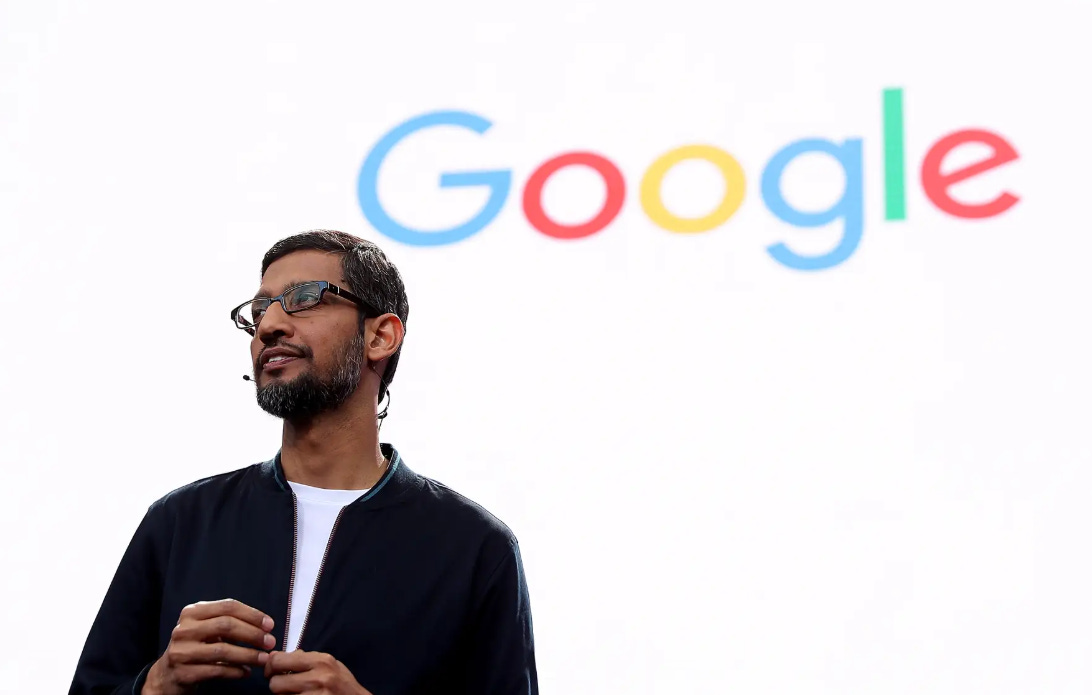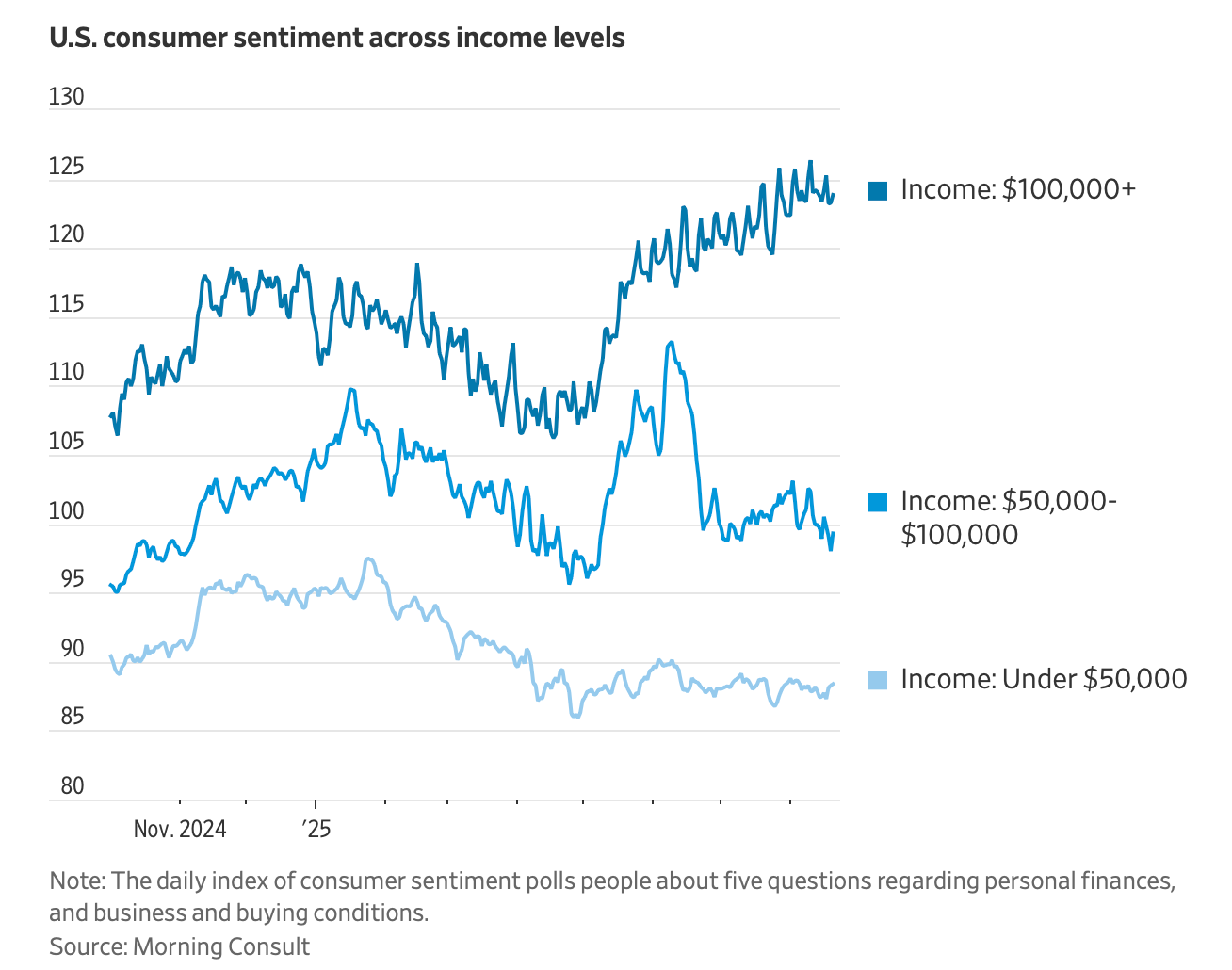Google's Antitrust Verdict Points to BigTech's Enormous Power in AI
Billionaires are officially poised to lead us straight into technological dystopia. Google DeepMind is poised to prosper with monopolistic unfair advantages.
Something happend this week that concerned me, and it has major ramifications on the future of AI.
“The rule of law is on tenuous grounds in America these days, with even easy stuff that might hinder the powerful running into serious obstacles.” - Matt Stoller
Federal District Judge Amit Mehta ruled on September 2nd, 2025 that Google can keep its Chrome browser but will be barred from exclusive contracts. This means all those pesky AI agents controlling browsers is full-on. This ruling will literally reshape BigAI as an extension of BigTech as more or less untouchable.
I am a little concerned or upset or maybe a tad outraged about what a healthy competitive market would look like vs. the monopoly power variety, pretty much since the early 2000s. Tuesday, September 2nd’s ruling will have repercussions for years to come with AI power.
The future of Chrome was the real deal. At stake too was more than $26 billion a year, $20 billion of which goes to Apple (which they can keep doing) - that’s nearly a quarter of Alphabet’s operating income. Part of the judge's decision means the tech giant must share its search data with competitors, but that’s of little real consequence. Data sharing among BigTech is common.
Is this what antitrust reform looks like in the United States in 2025? You see the honorable U.S. District Judge Amit Mehta’s decision comes nearly one year after he ruled Google illegally held a monopoly in internet search in the landmark antitrust case. So what gives?
Google avoided divesting Chrome and the stock today I expect (it’s Wednesday as I write this), will likely be in the 4-8% range (later that week: the stock is up 12% in the last five days), and amounts to hundreds of billions of dollars. Amit found Google was guilty, yet the repercussions seem benign and almost laughable for major corporations and future BigTech trials. America of course hasn’t broken up a Monopoly well, in quite a few years (1982, AT&T). That’s almost 50 years ago. If Google is a monopolist, where is the justice? The U.S. rule of law seems to protect its more valuable companies almost as if it was a matter of National security to do so. I’ve already been recently worried about rule of law and global order since the Trump Administration has been doing illegal tariffs and shaking things up in some of the worst possible ways. Trump could theoretically have even influenced the outcome of this case somehow.
It’s not just uncertainty, it’s the breakdown of order, a rules based system and a world where Billionaires are held accountable. None of that seems any closer with this ruling. The Google verdict on the consequences for being a monopolist were shockingly lenient and telling of the AI future Americans can expect. I’m not a nihilist when it comes to America’s justice system, but I have noticed BigTech usually gets off the hook:
“Mehta understood the law mandates he terminate Google’s monopoly, but he just decided against doing so. This kind of lawlessness, incoherence and deference to big business is now routine among elites in our society, so I guess it’s not too surprising that it happened in this case.” - Matt Stoller
The American internet has certainly been held hostage for several decades since the internet was born by the same few players and it’s been fairly toxic for not just users but society as a whole. It’s decimated journalism and our information systems have been replaced with algorithms and now AI slop that cannot lead to good social, democratic or institutional trust outcomes. I’ve been waiting for this moment for a while:
U.S. District Judge Amit Mehta ruled against the most “severe consequences” that were proposed by the Department of Justice (most often called the DOJ) like a forced sale of Chrome or anything to do with Android.
“Google will not be required to divest Chrome; nor will the court include a contingent divestiture of the Android operating system in the final judgment,” the decision stated. “Plaintiffs overreached in seeking forced divestiture of these key assets, which Google did not use to effect any illegal restraints.”
In August 2024, the U.S. District Court for the District of Columbia ruled that Google violated Section 2 of the Sherman Act and held a monopoly in search and related advertising.
Apparently the consequences of being in violation of the Sherman Act, is not so serious in America. What will this even mean for how OpenAI, Anthropic and xAI evolve in their BigAI evolution? The consequences could be dire. We waited two years just for this? The antitrust trial started in September 2023. Somehow even Google and Apple’s $20 billion exclusive deal in Search will survive. It’s unfathomable. The status quo remains. Analysts called the decision "benign" and said it removed a "significant overhang" on the stock. Alphabet is in the clear, even as it develops an over-powering command of the Generative AI ecosystem now in 2025.
‘Google will still be allowed to continue to use its monopoly to hold back competitors, including in AI search,’ said DuckDuckGo CEO Gabriel Weinberg.
Now Google gets to appeal the case. If Google will be able to keep making search deals like its $20 billion agreement to be the default option in Apple’s Safari browser. What would Alphabet even appeal? So to put it mildly in American politics of course - many Google critics aren’t happy with the remedies that have been handed down, saying that they don’t go far enough to slow Google’s dominance and restore competition in the market. What does search engine data sharing even entail? If the Trump Administration is full of Billionaires and Venture Capital its, am I really expected to believe he’s against BigTech monopolies? Trump has often warned the EU and European countries against sanctions against them.
What JD Vance campaigned on about taking on BigTech for his populist agenda, doesn’t really stand up to what has occured. The idea that Perplexity or ChatGPT search means Google faces an “existential threat” is almost laughable given how Google has already pivoted into AI Overviews, AI mode and who knows what else in the pipeline while hastening an internet full of synthetic content (otherwise known and experienced as “AI slop”).
Donald Trump seems to care more about the stock marketing going up than any sense of rule of law or justice in Capitalism, as the last few months of bizarre policies have shown, upending America’s reputation even among its closest allies. Meanwhile the American economy for the bottom 60% and that reality feels increasingly at odds as we head to near the end of 2025.
What Now BigTech
So to summarize on September 2, 2025, U.S. District Judge Amit P. Mehta issued a ruling in the antitrust case against Google, United States v. Google LLC (2020), following his August 2024 decision that Google illegally maintained a monopoly in online search and related advertising markets. The conclusions and remedies from this week's ruling are as follows:
No Breakup of Google: Judge Mehta rejected the Department of Justice's (DOJ) proposal to force Google to divest its Chrome browser or Android operating system, determining that such measures were too extreme and not directly tied to the case's focus on search distribution. This was seen as a significant victory for Google, as it preserved its core business structure.
Ban on Exclusive Search Deals: Google is barred from entering or maintaining exclusive agreements that tie the distribution of its Search, Chrome, Google Assistant, or Gemini products to other apps or revenue arrangements. This aims to open up competition by preventing Google from locking in its search engine as the default through exclusive contracts.
Default Placements Allowed: Google can continue to pay partners, such as Apple, to preload its search engine as the default on devices and browsers, provided these agreements are not exclusive. This preserves Google's lucrative deals, like the $20 billion annual payment to Apple for default placement on iPhones, which was a point of contention but upheld to avoid potential consumer harm (e.g., higher device prices or inferior search options).
Data Sharing with Competitors: Google is required to share parts of its search index and data with rival search engines to help them improve their services and compete more effectively. This includes search results and query data, though concerns were raised about user privacy and the administrative complexity of implementing this remedy. A five-person antitrust technical committee, including privacy experts, will oversee compliance to ensure data is shared appropriately while safeguarding user information.
Oversight Committee: Judge Mehta ordered the creation of an antitrust technical committee to monitor Google's compliance with the ruling, similar to measures imposed on Microsoft after its 1990s antitrust case. This committee will ensure Google adheres to the data-sharing and non-exclusive deal requirements.
Appeal Planned: Google has expressed concerns about the impact of data-sharing on user privacy and intends to appeal the ruling within 30 days of the final judgment. The appeal process could extend into 2027, delaying significant changes to the search market.
Market Implications: The ruling is considered a conservative approach, falling short of the DOJ's push for more aggressive remedies like divestitures or a complete ban on default payment deals. It aims to foster competition without disrupting Google's operations or consumer experience significantly. Analysts suggest the remedies may not drastically alter the search landscape immediately, as rivals like DuckDuckGo indicated the shared data might not be sufficient to compete effectively. However, the ruling sets a precedent for ongoing antitrust scrutiny of Big Tech.
Chrome a pivotal part of Browser based AI
The Judge basically didn’t grant any of the meaningful requests of the DOJ as far as antitrust enforcement goes. This after about two decades of abuse by Google, easily one of the most blatant digital monopolists. I can tell you this, given how browser-centric autonomous agents are going to be, Chrome is worth a lot more than the $50 Billion figure sometimes thrown out there.
Here we are talking about approximately 3.65 billion people use Google Chrome worldwide, representing the largest share of the global browser market, with some sources estimating about 65% total marketshare.
It’s the biggest antitrust trial in three decades and a major opportunity lost for rule of law in the digital law spectrum.
"Binding precedent says I must do this, but I am not going to do it." - John Mark Newsman.
Mehta declined to grant some of the more ambitious proposals from the Department of Justice (DOJ) to remedy Google’s behavior and restore competition to the market. I will be worried about what precedent this sets on an internet increasingly being manipulated by the financial elite against users, consumers and even citizens. There is now a clear disconnect of one of the most powerful MAGA and BigAI companies that is Alphabet - and a future where AI is or isn’t a force for a good outcome for humanity and civilization.
What had the DOJ fought for?
According to Matt Stoller, “the DOJ asked to remove the defaults that automatically place Google as the search choice for most browsers, an end to search-related payments, a spinoff of the Chrome browser which was itself a big search access point, as well as regulation of the mobile operating system Android. It also asked for syndication of Google’s search results and data to approved rivals, which is a way of forcing Google to not enjoy the illegal “fruits” of its monopoly by offering rivals some access to the secret sauce.”
The most important case since Microsoft, and all the Judge said was to order Google to 1) share some valuable search information with rivals that could help jumpstart their ability to compete, and 2) bar the search giant from making exclusive deals to distribute its search or AI assistant products in ways that might cut off distribution for rivals.
That’s not looking very promising for fairness or a competitive market. Google commands about 92% of the global search engine market share in terms of Search Advertising revenue. In terms of all digital advertising, Google held about 39% of the global digital ad revenue in 2023, making it the leading platform in the digital advertising market. Given how vast the internet is, these are huge numbers that have entrenched Ads as a major, if not THE major business model of the legacy internet. This has impacted the quality and viability of media and the future of democracy, not just rule of law or free market capitalism.
“It’s the most significant antitrust remedies ruling against a tech giant in about 25 years, since the DOJ’s case against Microsoft.” - The Verge
Neither Tech publications or Matt Stoller seem to make the leap of what this means for the AI era. It almost has ramification on the future of AI that aren’t being unpacked generally speaking by those covering the ruling. I think it’s sort of a big deal for what is yet to come. And it’s not good. Google is becoming a major force and possible monopoly in the future of Generative AI, outpricing rivals through subsidizing costs due to its huge cash reserves and monopolistic leverage and platform dominance. This has attracted hoards of developers to its ecosystem and and significant talent to build even better LLMs. And, it’s not even a fair fight. By the time these things even come to an antitrust trial the anti-competitive advantages have been baked in for years, if not decades! And knowing now how the U.S. system works, let’s be honest - it could still be years until Google is actually required to implement these solutions — if ever (appeals delay verdicts for years).
So it’s a kind of digital theatre really. But BigTech’s influence and power is very real. Just a few companies hold an overwhelming sway on the future of the internet, but also internet users not just in America, but all over the world. On the AI tools we use and who wins. That guarantees a world where wealth inequality is accelerated and the concentration of power is stacked against society, people at large and the world. The lure of AI authoritarianism by a few bad actors will become too great I fear. Changes in America have already taken place that make much of this inevitable. But this is an AI publication so let’s try to explore some of the ramifications on that sidse.
What’s AI Got to do with it?
As the trial progressed and the Judge had time to review the case, something happened back in the real world.






